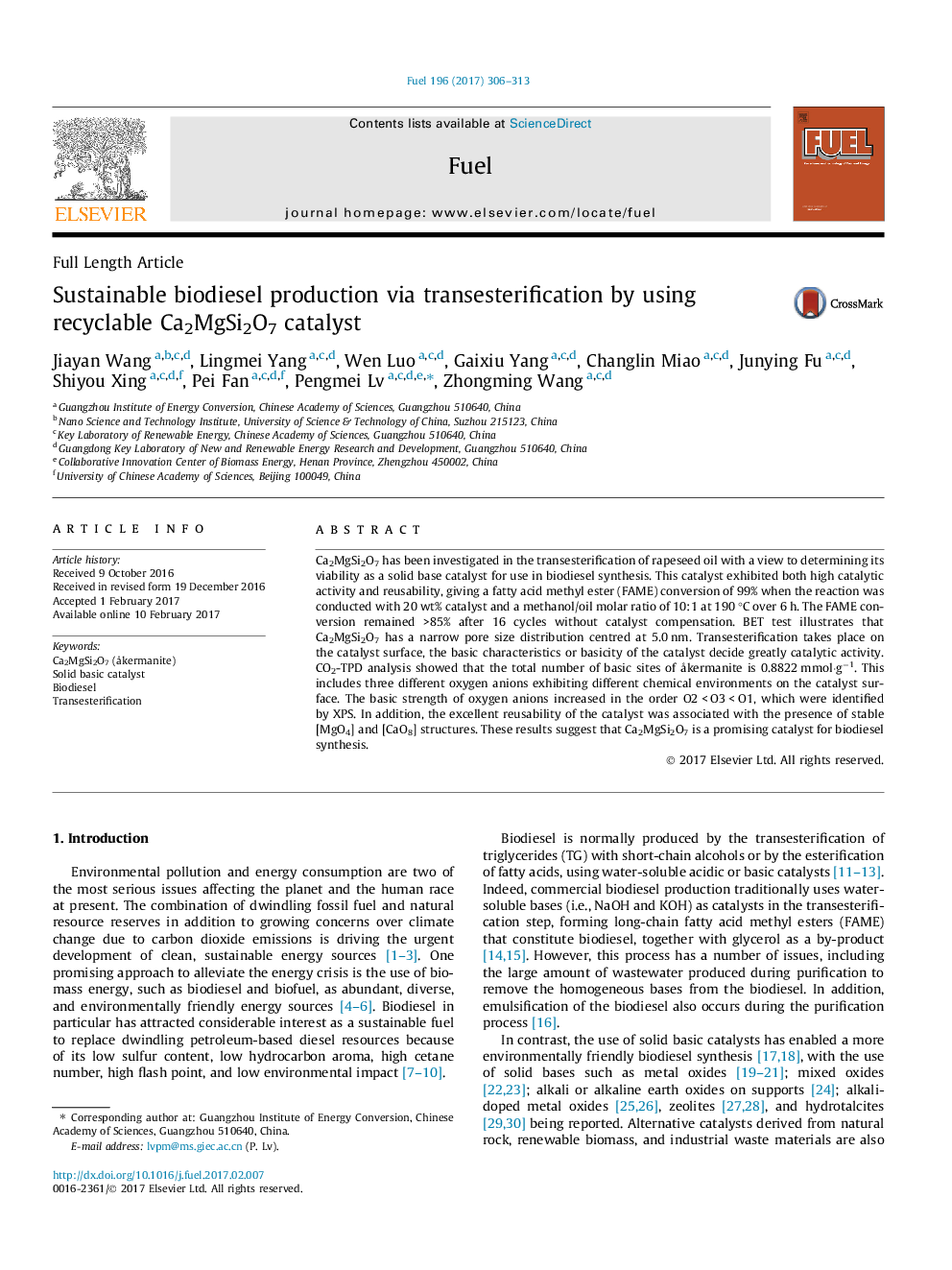| Article ID | Journal | Published Year | Pages | File Type |
|---|---|---|---|---|
| 6475059 | Fuel | 2017 | 8 Pages |
Ca2MgSi2O7 has been investigated in the transesterification of rapeseed oil with a view to determining its viability as a solid base catalyst for use in biodiesel synthesis. This catalyst exhibited both high catalytic activity and reusability, giving a fatty acid methyl ester (FAME) conversion of 99% when the reaction was conducted with 20 wt% catalyst and a methanol/oil molar ratio of 10:1 at 190 °C over 6 h. The FAME conversion remained >85% after 16 cycles without catalyst compensation. BET test illustrates that Ca2MgSi2O7 has a narrow pore size distribution centred at 5.0 nm. Transesterification takes place on the catalyst surface, the basic characteristics or basicity of the catalyst decide greatly catalytic activity. CO2-TPD analysis showed that the total number of basic sites of Ã¥kermanite is 0.8822 mmol·gâ1. This includes three different oxygen anions exhibiting different chemical environments on the catalyst surface. The basic strength of oxygen anions increased in the order O2 < O3 < O1, which were identified by XPS. In addition, the excellent reusability of the catalyst was associated with the presence of stable [MgO4] and [CaO8] structures. These results suggest that Ca2MgSi2O7 is a promising catalyst for biodiesel synthesis.
